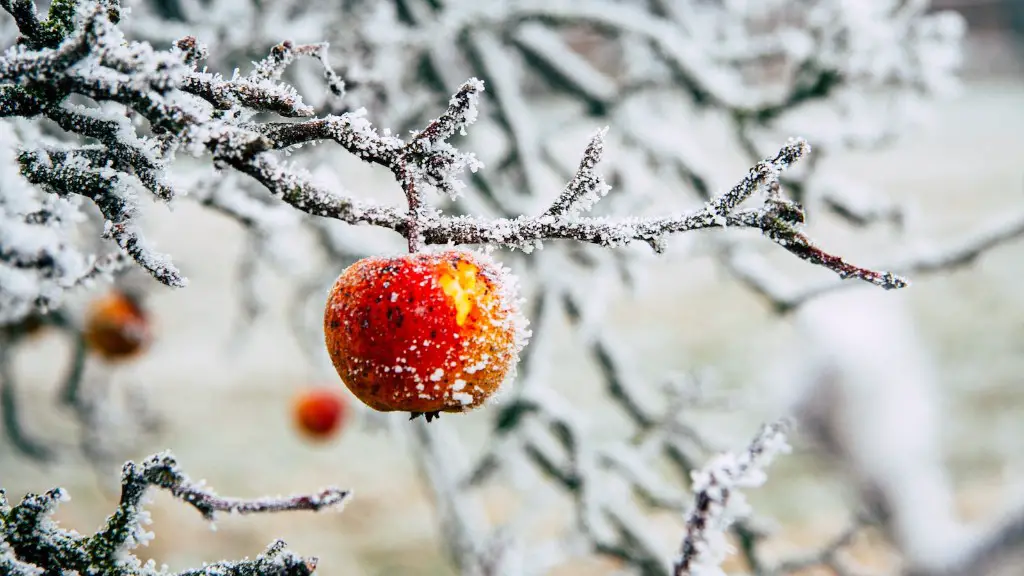Applying fertilizer to a lemon tree is essential to ensuring its productive growth. In order to do so, there are a few key steps to follow. Firstly, it’s important to purchase the correct type of fertilizer. Look for a formulation suitable for citrus fruits, which will provide your tree with the appropriate nutrients. Secondly, the lemon tree should be watered prior to application. This will help the fertilizer get absorbed more evenly into the soil. Thirdly, the amount of fertilizer to be used should be calculated. This depends on the size of your tree, as well as the brand and type of fertilizer you select. Fourthly, spread the fertilizer around the tree carefully – avoid using too much in one spot as this can cause nutrient deficiencies. Fifthly, rake the surface of the soil lightly and water the fertilizer into the soil. Sixthly, the fertilizer should be reapplied regularly – typically at least once a year. Finally, make sure to add mulch around the base of the tree. This will help keep the soil moist and provide additional nutrients.
Know Your Lemon Tree’s Requirements
Prior to applying fertilizer to a lemon tree, it’s important to understand the tree’s specific needs. Different varieties have diverse requirements which must be satisfied in order to ensure maximum productivity. For example, some lemon trees might require more frequent applications whereas others might require less. Furthermore, some varieties may need specialized fertilizers due to their particular needs. Consult with a local nursery to find out what specific fertilizer to utilize for your lemon tree. Additionally, research about the variety you are planting to gain deeper understanding of its requirements.
When To Fertilize Lemon Trees
The primary growing season of lemon trees is during the springtime, which is why fertilizer should be applied from spring to late summer. During this period, the tree needs a steady supply of nutrients to produce healthy growth and, eventually, fruit. During the warmer months, it’s best to fertilize your lemon tree every three or four weeks. However, it’s important to adjust the amount of fertilizer depending on the weather – during periods of unusual weather, a reduction in fertilizer may be necessary.
Pest Control
When you are applying fertilizer to your lemon tree, it’s important that you also inspect the tree for signs of pests or diseases. Certain pests and diseases can severely damage a lemon tree and reduce the amount of fruit it produces. Look for strange markings on the leaves, brown spots on the fruit, or webs around the branches. If you spot any of these warning signs, take action right away and apply an appropriate pesticide or biocontrol agent to prevent further damage.
Organic Fertilizers
If you are an organic gardener, you may choose to use organic fertilizers for your lemon tree. There are many different types of organic fertilizers available, such as compost, manure, or seaweed. Each of these will provide your tree with a different set of nutrients, so it’s best to select the one that provides the most benefit for your particular tree. However, it’s important to remember that organic fertilizers tend to be more expensive than conventional ones.
Time of Application
When applying fertilizer to a lemon tree, it’s best to do so in the morning or evening. This will help to prevent the fertilizer from being burned by the sun. Additionally, avoid applying the fertilizer in windy weather as the particles could be blown away and not reach their target area. Once you’ve applied the fertilizer, make sure to water it into the soil to help it dissolve more quickly and efficiently.
Soil Conditions
Finally, before you apply fertilizer to a lemon tree, it’s important to inspect the soil conditions. The pH level of the soil should be between 6.0 and 7.0, as this is the ideal range for lemon trees. You can check the soil’s pH with a simple soil test which you can purchase at most garden stores or nurseries. Additionally, soil that is too dry or too wet can hinder the absorption of the fertilizer, so make sure to water the soil appropriately.
